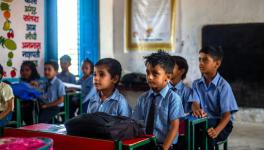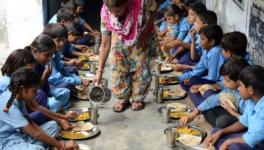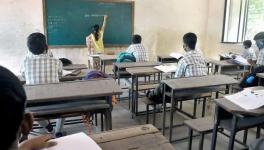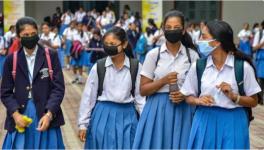Online Education: Tamil Nadu Students Struggle with Digital Divide
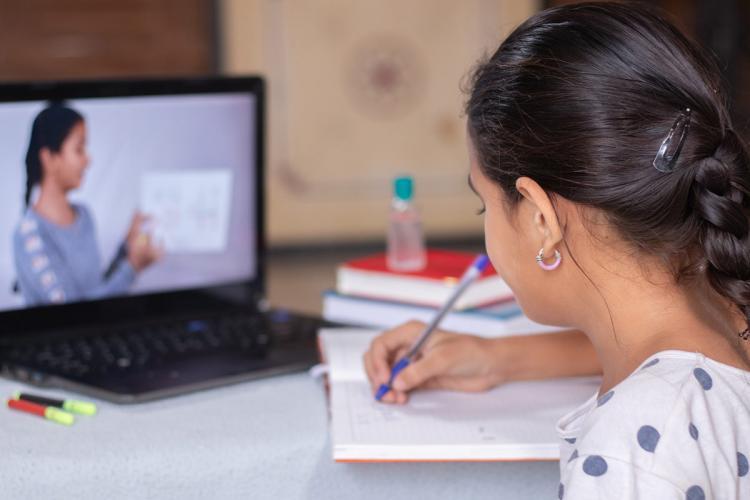
Image Courtesy: The News Minute
The Central University of Tamil Nadu (CUTN) and Anna University, Chennai have geared up for the online exams for the final semester students. Though the universities have announced that the students can take the conventional exams later once normalcy is restored, the student community is apprehensive of the decision to conduct the exams.
The graduate students, for whom the online classes have begun for the academic year 2020-21, the lack of gadgets, and the internet have come as a stumbling block. The school students complain of fatigue, as the daily classes run for three hours per day.
With a huge divide existing in the state when it comes to access to the internet and smartphones, has added to the students’ troubles.
FINAL SEMESTER EXAMS BY AUGUST END
The decision to conduct the final semester examinations has been announced by Anna University and CUTN. The universities have decided to conduct the exams with reduced syllabus and duration. Anna University had made clear the intention to conduct the online exam by collecting details of the students with and without internet connectivity.
A faculty member working with a self-finance engineering college said, “We received information on the plans to conduct online exams for the final semester students. But, the availability of smartphones or digital devices is a handicap even as provision for writing the exam at a later time has been provided.”
The students without access to the basic facilities fear further delay in the publication of their results. “A few of our friends in faraway villages with good academic records will suffer. They won't be able to appear for the online exam while the delay result would affect their higher education possibilities and employment,” a student of the university department said.
COLLEGES BEGIN ONLINE CLASSES
The government of Tamil Nadu, on July 30, instructed the universities to commence the online classes for the students from August 3. The announcement came out of the blue, as not much preparation was underway before the announcement.
“The management has reduced around 50% of the salary for the staff; some colleges have not paid the staff members for several months citing the lack of fee income. Now, we are asked to conduct online classes for at least three hours per day. However, the lack of internet coverage, data usage, etc. are crucial issues,” said a Chennai-based assistant professor of a self-financing arts and science college.
The students suffer even more as many from middle and lower-income families have started doing menial jobs. “A few of my students are doing daily wage jobs as their families have lost their income. Some of the students don't have smartphones and some don't own a computer,” they added.
SCHOOL STUDENTS AND FATIGUE
The private schools in the state have also started conducting online classes, forcing the students from primary schools to attend the classes. The parents have an uphill task of ensuring the attendance, apart from the technical glitches they may face.
“It is almost like we are back to school. I have to sit with my son for the whole duration of his three-hour class every day. The students are hardly interested in the online classes, which is evident from the attitude of trying to evade the classes,” said Bharathi, a mother of two children from Thanjavur.
Her son and daughter feel exhausted after attending the classes either using laptops or smartphones. “They sleep more these days as they suffer fatigue after watching the classes for three hours. They have itchy eyes on most of the days. We cannot understand why such young children are being forced to attend these classes,” she added.
GOVERNMENT SCHOOL STUDENTS FEEL LEFT OUT
The school bags, uniforms, and books were distributed among government school students. With most of them coming from economically backward backgrounds, the possibility of attending online classes or even televised classes are a luxury. A class X student from Cuddalore district reportedly committed suicide as he could not afford a smartphone to attend the class.
An English teacher in a government higher secondary school in Tiruchendur said, “Only six of our class XII students meet the requirements to attend the online classes. Even if they watch the televised classes, we need the facilities to monitor them. The wide gap in access to smartphones and the internet in rural areas are excluding the students from the education they deserve.”
Also read: The Real Struggle for Life Goes On, As a Temple of Dreams Rises
Get the latest reports & analysis with people's perspective on Protests, movements & deep analytical videos, discussions of the current affairs in your Telegram app. Subscribe to NewsClick's Telegram channel & get Real-Time updates on stories, as they get published on our website.









